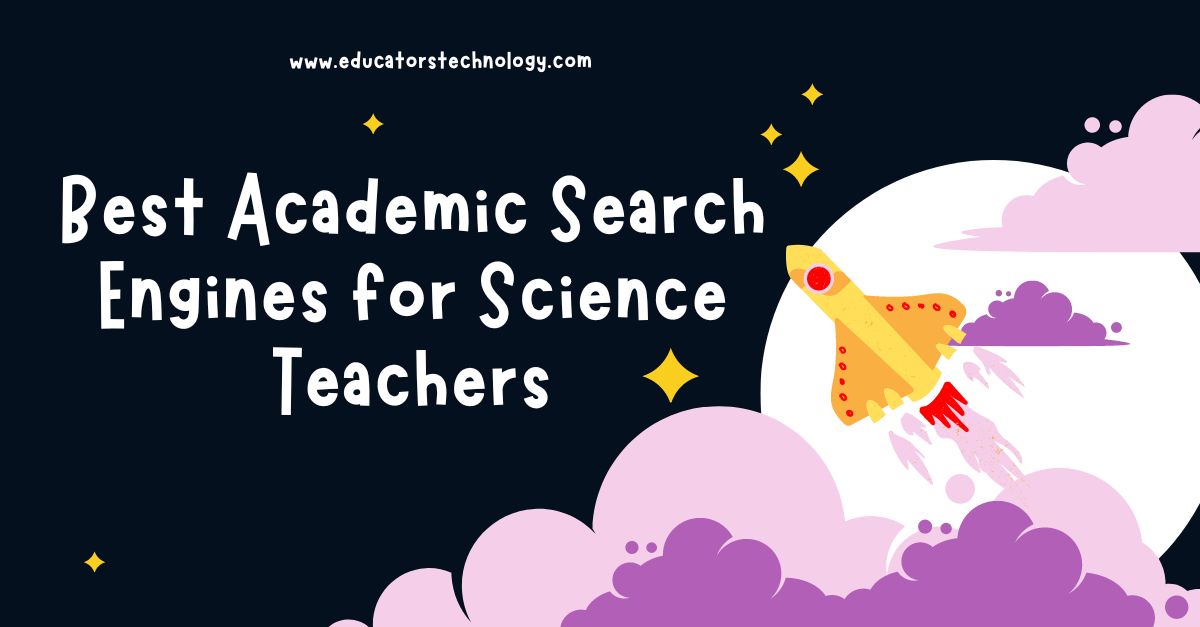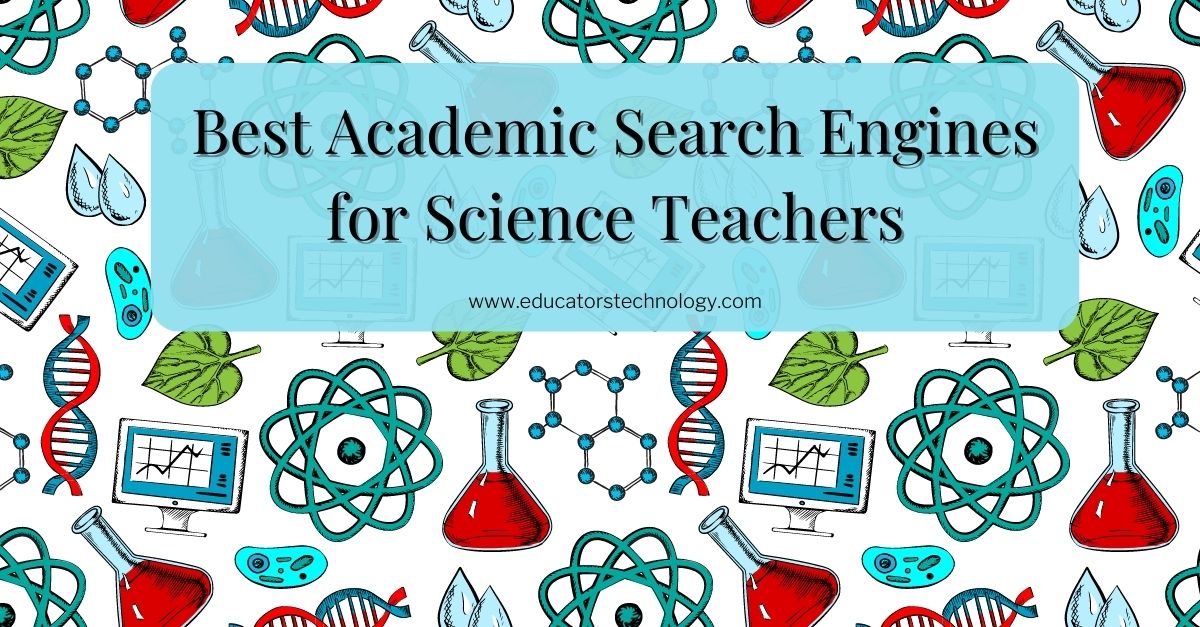After covering Google Scholar alternatives, I got an email from a science teacher asking for recommendations for science-focused academic search engines so I created the list below. I included what I believe are some of the most reliable and academically authoritative search engines with a focus on science (among other disciplines). I am using the word science in its broad denomination incorporating a wide variety of disciplines.
You can use these search engines to search for and locate science academic literature including peer-reviewed journal articles, theses/dissertations, books, reports, and many more. While some of the resources you might come across are available for free most of the academic literature, as you know, is paywalled and you can either use your institutional affiliation or purchase the document yourself to access it.
PubMed is a platform that features academic and scientific research covering the areas of biomedicine, health, life sciences, behavioral science, chemical sciences, and bioengineering. “The PubMed database contains more than 34 million citations and abstracts of biomedical literature. It does not include full text journal articles; however, links to the full text are often present when available from other sources, such as the publisher’s website or PubMed Central (PMC).”
PubMed also offers a service called Bookshelf featuring full text archive of books, reports, databases, and several other materials related to the fields of life sciences, health, and biomedical.
Science.gov offers access to over 200 million results from scientific organizations across 13 US federal agencies. “Science.gov makes it possible for users to search over 60 databases, over 2,200 websites, and over 200 million pages of authoritative federal science information in many formats, including full-text documents, citations, scientific data supporting federally funded research, and multimedia.
Science.gov is becoming a federal public access portal consistent with its original purpose and current vision and goals. It is making available free journal articles, peer-reviewed accepted manuscripts, and reports of research funded by federal science agencies, as well as the agencies’ public access policies and requirements. In addition, Science.gov now offers information from across the federal government on education and training opportunities in science, technology, engineering, and mathematics (STEM) fields for undergraduate and graduate students.”
Scopus by Elsevier is a database of citations and abstracts of peer-reviewed literature. Scopus covers academic research from various subject areas including science, humanities, arts, social sciences, medicine, and technology. Scopus offers a wide range of search features including document search, author search, affiliation search (e.g., identify scholarly research of a given institution), and more.
“Scopus indexes content from more than 25,000 active titles and 7,000 publishers—all rigorously vetted and selected by an independent review board. Users get access to thousands of titles, millions of author profiles and 1.7 billion of cited references.”
Google Scholar is Google’s search engine for academic and scholarly literature. It allows you to search an extensive cross-disciplinary database of scholarly sources including books, academic articles, theses/dissertations, abstracts, court papers, and many more. Google Scholar search results are retrieved from different sources such as peer-reviewed journals, online repositories, websites, academic publishers, professional societies, and more.
If you are an author, you can create your own author profile and add your academic work. Google Scholar allows you to check those that cite your publications and sends you email alerts each time your work is cited online.
To make the best of Google Scholar search, you need to use its integrated search filters. For instance, you can search for academic works by date, author, and/or title. You can also use the ‘Related articles’ feature to find articles similar to the given search result. Note that abstracts are generally available for free, however, to access the full article might sometimes require a subscription in which case you might want to use the library link on the right of the search result to access it via your institution’s library, or you can click on ‘All versions’ under the search results to access alternative sources.
WorldCat is one of the largest online library catalogs that connect thousands of libraries collections into a single platform allowing you to search various libraries from a single search box. You can use WorldCat to search for a wide variety of resources including research theses, books, magazines, songs, maps, genealogical records, movies, and more. WorldCat also features open source e-books, articles, and downloadable audiobooks and photos.
WorldCat enables you to access ‘article citations with links to full text, authoritative research materials, one-of-a-kind documents and photos of local or historic significance, and digital versions of rare items that aren’t generally available to the public.’
Education Resources and Information Center (ERIC) is an online database of a wide range of academic materials and grey literature from both journal and non-journal sources including research reports, journal articles, dissertations/theses, books, opinion papers, speeches, meeting papers, collected works, reference materials, guides, surveys, and many more. ERIC is sponsored by the United States Department of Education Institute of Education Sciences. Access to ERIC is free and does not require any membership or subscription.
ERIC provides a host of interesting features to help you find relevant research materials. For instance, you can search for academic work published within a specific time frame, or you can use descriptors to further narrow down your topic and target a specific area. You can also filter your search by source, author, publication type, education level, audience, location, among other filters. You can also choose whether you want to search for only peer-reviewed articles or for full-text that is available on ERIC.
BASE (Bielefeld Academic Search Engine) is another good academic search engine operated by Bielefeld University Library. It offers access to over 240 million documents from over 8000 content providers. Over half of the the indexed materials in BASE is open access and is freely accessible. BASE allows you to run targeted searches and get academically relevant results .
When you conduct academic searches on BASE, you will get results with precise bibliographic data together with information about access and terms of re-use for a document. BASE also provides you with handy features to help you effectively search their extensive database. For instance, you can refine your search by author, subject, Dewey Decimal Classification, year of publication, content provider, language, document type, and many more.
‘In BASE two different search surfaces are available: a basic search providing a single search field (search in all parts of a document by default) and an advanced search with multiple search fields and more sophisticated search options. In the basic search you get search suggestions after typing at least 3 letters. By selecting a search suggestion you can apply it to the search field.’






